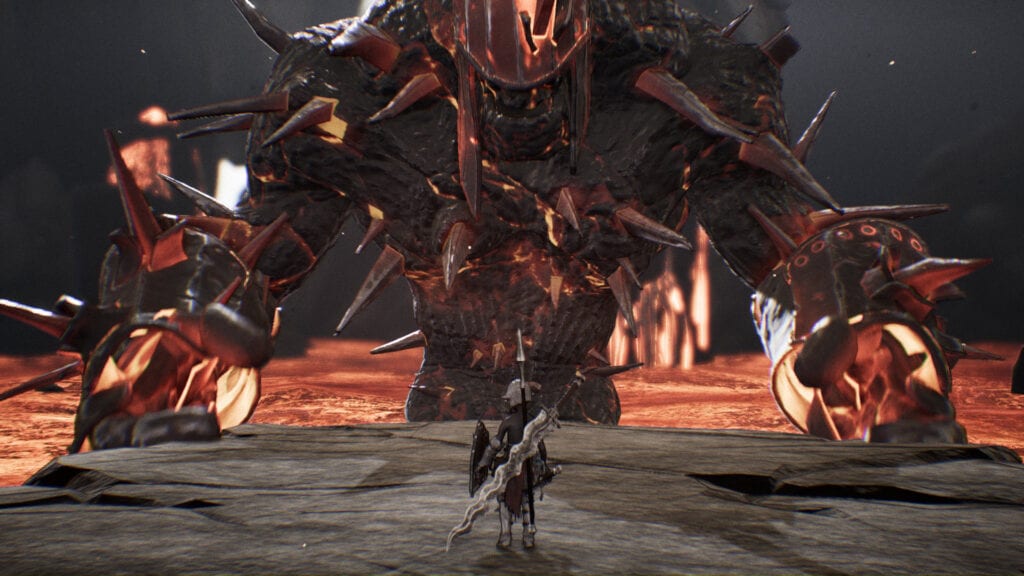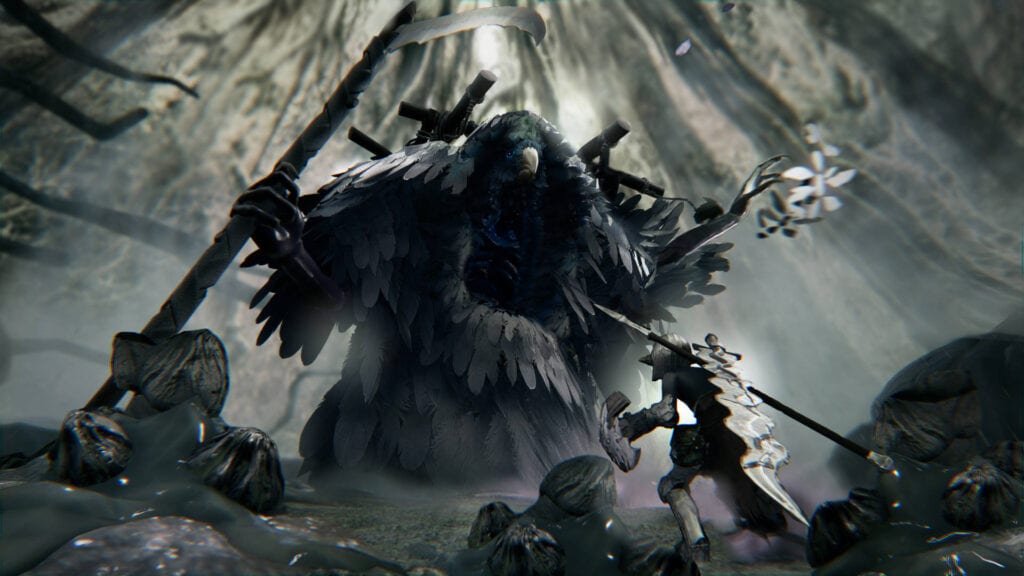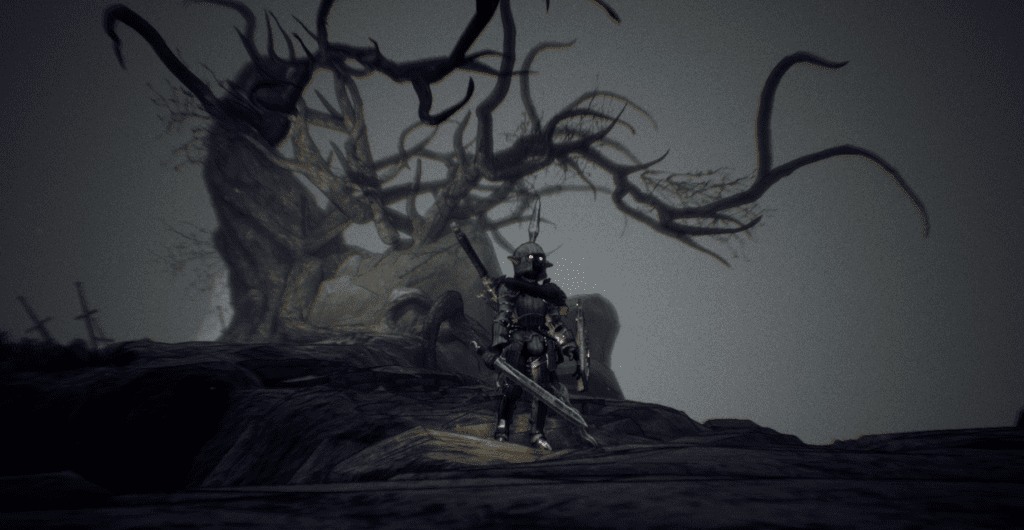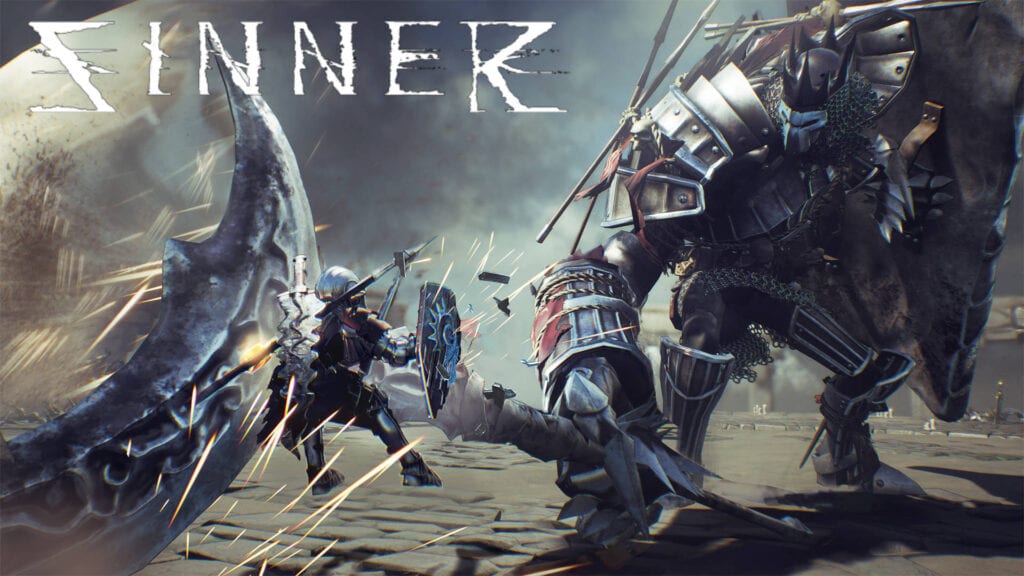Sinner: Sacrifice for Redemption Review, Far More Than A Dark Souls Clone

When people complain about Dark Souls, only one strikes me as legitimate. And no, it’s not the difficulty; you knew what you were getting into when you booted up. It’s the inevitable, interminable grind. Who actually likes cutting through the same minions over and over again to face a devastating boss? That sort of game works for players with loads of free time, but what about gamers with 9-to-5 gigs? How about parents who get less than an hour a day to themselves? Repeating the same meaningless kills on your way to an exhilarating duel ruins fun. That’s what Sinner: Sacrifice for Redemption understands that so many Dark Souls imitators fail to understand. Players want the best of that immortal franchise, not the worst. And boy, does Sinner deliver.
You play as Adam, who is, aptly, a sinner. Evil has taken hold of the world. You have caused this despair, and only you can end it. You enter a rocky outcrop with seven stones, all inscribed with text directly addressed to you and your failings. Bosses lay behind the relics, and each represents one of the Seven Deadly Sins. It is up to you to defeat them and then challenge one last boss, a villain “greater than sin itself.” You’ll have heavy and light swords, a shield, fire bombs, and electric spears to aid on your path to salvation. Or at least, you will at first.
Unlike Dark Souls, the further you get in Sinner, the worse you get. You see, the game employs a unique “downgrade” feature, as the publisher Another Indie describes it. Each time you challenge a boss, you need to sacrifice some of your stats. You are as strong as you will ever be during your first fight. Your health potions, sword damage, health and stamina bars, throwable items—all will be taken from you. You open as a glistening knight with glowing eyes and pointed blades. You finish as a broken husk of a warrior going against the strongest enemy you’ve ever faced, sword bent and armor shattered. If you fail to defeat a boss, you can regain your stats and try your hand at a different opponent. But once you emerge victorious, you’re permanently weaker. A Pyrrhic Victory if I’ve ever heard of one.
I’ve yet to complete the game, and based on how it’s going, I doubt I will. The combat is solid and boasts immediate response times. However, as powerful as I sometimes feel, Sinner: Sacrifice for Redemption absolutely nails the Dark Souls difficulty scale. I’ve taken down a couple of bosses, but I’m already beginning to feel the struggle. (Pro tip: Master parrying ASAP.) Their unique powers and moves remain difficult to judge, and watch out when you drop their health bars. Their late stage moves can be absolutely devastating. I’ve gotten close to taking out two other bosses, only to have my hopes shattered with a single hit. At least I’m in good company; only one member of the publishing team has managed to beat the game thus far.
This is an indie game, but it has all the looks and feels of a triple-A title. The art style shows careful thought behind each adversary. Greedy Faiz Tilus, a raven mage with a scythe, sends leeches after you to take whatever is available. Envious Levin Undok glides across a crystal dance floor and splits into a pair of twirling ballerinas, daggers and lightning shimmering across the room. Proud Rhodes towers over you from his throne, an overly confident paladin fully aware of the power he wields. They embody their sins, and the Unreal Engine 4 does them justice. Gorgeous cutscenes before battle clue you in on how they turned into the monstrosities that lay before you. Spoiler alert: Adam played a part.
I read some online complaints that the game lacks shadows (in a world where there also doesn’t appear to be a sun). If that’s the biggest problem with the game’s art style, they’ve hit a home run. The haunting soundtrack before the relics and the pumping fight music bring it all together, creating a devastatingly beautiful aesthetic for an excruciatingly difficult game.
Obviously, Sinner, ahem, borrows heavily from Dark Souls’ gameplay mechanics, art style, and difficulty level. What they did not take is an extensive playthrough. The game should take no longer than ten hours per playthrough. That’s assuming a level of boss battling talent I clearly do not possess, of course, but even doubling that still makes it shorter than any Dark Souls title, assuming you fully explore the world. Players still get all the intense frustration of losing to oversized bosses and all the elation of taking them down. But all of those busy gamers I mentioned at the start? An hour a day lets them finish the game.
The short amount of time is mostly thanks to Dark Star, the Chinese dev team behind Sinner: Sacrifice for Redemption. The team is full of industry vets, but this is their first game as a group. They previously worked for companies like Bandai Namco and Blizzard, and their experience shows. The quality of the visuals and combat far surpass those of nearly any other indie. When the team first fell in love with Dark Souls, they had the freedom to spend hours gaming at will. Now past their 20s with families, they can no longer sink 50+ hours into exploring every nook and cranny of a Dark Souls title. Call this boss battling on a time crunch.
From the moment you begin to play Sinner, you’ll notice just how deeply of an impact the game made on Dark Star. It’s impossible to overstate how much they adore that franchise, and Sinner is their love song. I was fortunate enough to play some early builds of the game. They’ve actually toned down the homages. I’m glad they did. While Sinner: Sacrifice for Redemption is clearly cut from the same vein as Dark Souls, the title stands on its own merits. The inspiration is clear, but this game is Dark Star’s vision. Their years in the industry have paid off with this absolute gem.
Bottom Line →
Sinner: Sacrifice for Redemption deserves your immediate attention, especially if you’re a masochist. A number of my gaming friends—OK, most of them—picked up one Dark Souls game. The difficulty level had them running for the hills. The downgrading system and incredible boss designs make this just as hard, if not harder, in a shorter amount of time. If you’re looking for a game that won’t break the budget but will keep you frustrated for hours on end, you’ve found it. The combat sings, the audio invigorates, and the unraveling story keeps you motivated. There’s very little to gripe about here. It’s one of the tightest, most well designed indie games in recent memory. Hell, it’s superior to quite a few of triple-A games as well. Add in a $20 price tag, and this must own for any Dark Souls fan goes from incredible game to absolute bargain.
Just remember: it’s hard. Really hard. Don’t complain to me about your failures. Just be like Adam, get back to the grind, and redeem yourself.
9.5 out of 10
Sinner: Sacrifice for Redemption is now available on Discord. The dedicated storefront launched today, offering a new p. On October 18, it will also be available on PlayStation 4, Xbox One, and Nintendo Switch. The game will launch at an undisclosed date on Steam and costs $18.99 across all platforms.

Drew Weissman230 Posts
Drew is a freelance writer for DFTG. He's the former Managing Editor of Haogamers and has been published in the Chicago Tribune and The Paragon Journal. He also edited the novel Three Brightnesses and Artist Journey: Rachta Lin (2016 and 2017 editions).













